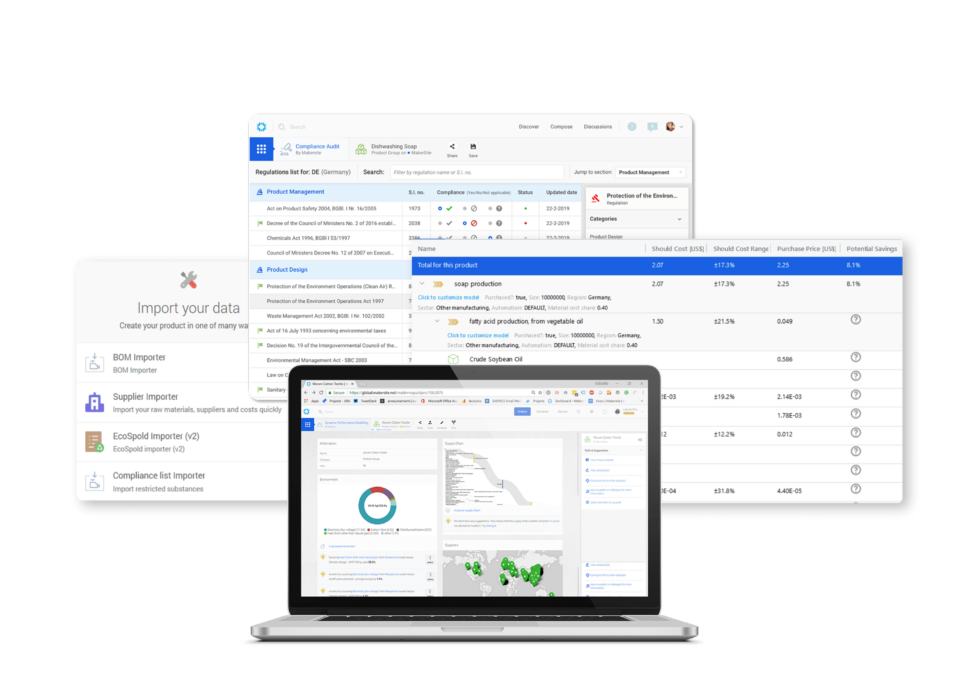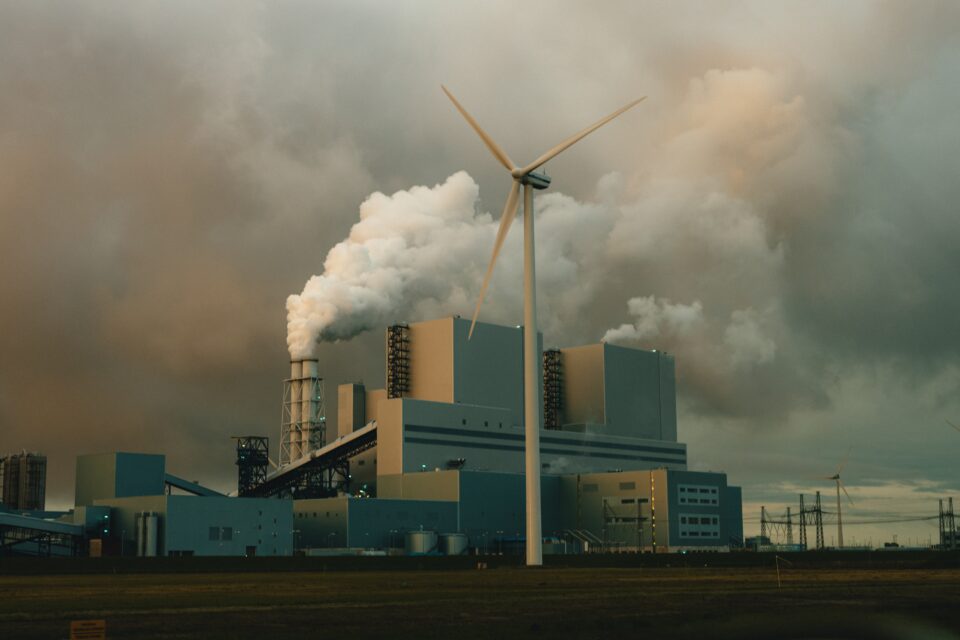


Companies extract resources and produce emissions all along their supply chain. They often have no insights into the environmental impacts in their increasingly complex supply chains. At the same time companies are under pressure from governments, consumers, NGOs, and other stakeholders to divulge more information about their supply chains, and the reputational cost of failing to meet these demands can be high. The data required is highly fragmented in “vertical systems” such as Product Lifecycle Management systems for technical data, ERP for raw materials and order details, supply chain management systems for supplier data, etc.
Scope 3 emissions are greenhouse gas emissions which occur along the value chain of a product or service. Most enterprises still struggle to understand and measure these emissions along their supply chains, let alone take action to reduce them. These scope 3 emissions can account for as much as 80% of a company’s total emissions.

Makersite is a mission-driven data and software company that develops next-generation product data management tools for the global manufacturing industry. It uses artificial intelligence and graph technologies to help design and improve manufacturing products across multiple criteria including regulatory compliance, environmental impact, supply risk, and cost of production. Digital twins enable teams to measure impacts and collaboratively identify optimal mitigation strategies and new sourcing opportunities in real-time and make better products, faster. Makersite has been establishing ground-breaking partnerships with data vendors to build the world’s largest connected product information database to power their platform.
Solving the hardest part about emission management
Makersite allows its users to track a product’s emission footprint throughout the entire supply chain, including Scope 3 emissions, bringing carbon accounting to the next level. And it does not stop there. As we will see tighter regulation create a more even playing field for sustainable products over the next decade, tracking emissions and raw materials beyond CO2 will gain significance.
Supply Chain Transparency
Makersite allows its users, engineers, product designers, and purchasing departments to gain insights into their supply chains in real-time. While the suite can source data from various APIs, one of its superpowers lies in making sophisticated guesses on each part’s whereabouts, cost, and emission structure.
Addressing the very beginning of a circular economy – the design
The new paradigms of sustainability and circular economy require the design and development of products to change. Designers and engineers are called to rethink the way products are conceived, anticipating life cycle and end of life issues in the early phase of design. Makersite is a powerful ecodesign tool that provides significant potential for improving resource efficiency.
Mind-Blowing Traction
Despite being only a few years old, Makersite has already managed to gain recurring traction throughout various industry verticals with blue-chip enterprises such as Microsoft, P&G, Philips, and Lush and won multiple awards.
Founder Fit
Neil d’Souza, the company’s CEO, has an unparalleled track record, enabling him to build Makersite as a powerful tool to operate at the intersection of big data, life cycle analysis, and SaaS. He has been able to build a stellar team to make impact transparent in the first stages of a product’s life cycle.
Mission Alignment
Planet A is strongly convinced that transparency regarding impact is indispensable in building an economy within the planetary boundaries. Makersite’s business model is driven by production companies’ need for increased speed of product development and resilient supply chains on the one hand, and the upcoming regulatory change requiring various types of companies to report on their Scope 1,2 & 3 emissions on the other. Makersite is a natural fit for the Planet A portfolio, transforming Life Cycle Assessments into an operational standard for product development in the industry.


The life cycle assessment (LCA)-based evaluation of the complete supply chain is an important feature of Makersite. Makersite not only provides a detailed assessment of environmental hotspots within the supply chain and allows to assess environmental implication of material and design choices on the fly but also provides insights into the environmental implications of choosing alternative suppliers. A recent study showed that companies conducting an LCA reported net reductions in the carbon footprint of 3.9 and 10.9%, respectively.
According to the Circular Economy Action Plan 2020, “up to 80% of products’ environmental impacts are determined at the design phase”. Makersite enables companies to make sustainability considerations an integral part of the design process of new products or services. This facilitates the development of more sustainable products supporting the transformation towards a circular economy within the planetary boundaries.